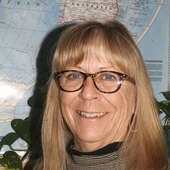- Research tips and McCook Brick Company- solid as a brick (12/16/24)
- Big Give appreciation and some railroad characters (11/15/24)
- George Randel becomes a landowner, gets married, and takes in a Buffalo Bill show (9/20/24)
- The memoirs of George F. Randel, early settler of Red Willow County (9/12/24)
- Vietnam War Memorial honors Nebraskans who served (6/13/24)
- McCook business promotions - just prior to 1893 stock market crash (5/30/24)
- Shall we dance? Meet you at the Gayway (12/8/23)
The McCook Equity Exchange
Friday, February 14, 2020
A “Hall of Fame” contest was held in 1976 by the Red Willow County Bicentennial Committee as part of the celebration. Committee members, Lester Harsh, Bob Paschall, John McDowell, and Donna Cheney (Mrs. Wendell Cheney) announced that the purpose of the contest was to select names of individuals who would be permanently recorded as part of the history of Red Willow County.
The contest, open to everyone, allowed submittals of as many entries as desired. Persons nominated could be living or deceased and they listed individuals from pioneers to military or civilian heroes, mothers or fathers, good neighbors to political figures as possible entries. Each nomination had to have a narrative explaining why that person was instrumental in promoting the general welfare of Red Willow County.
The many individuals included are familiar names, in fact, I took much of my information on Asa and Alice Wolfe from the publication, but today, I want to celebrate the inclusion of those men who spearheaded the McCook Equity Exchange.
Written by Lloyal Nicholson, the following is the narrative of their efforts: “I want to nominate a group of men for the Red Willow County Hall of Fame. It was through their efforts and sacrifices that one of the largest businesses of the county came into being. These men are Gerald Wilcox, John Hammell, John Hesterwerth, Sr., Donald Thompson, Sr., William McKinney, Joseph Schmitz, Sr., Roy Newell and Jim Modrell. They were the first board members of the McCook Equity Exchange and Mr. Modrell served on the board for 41 years. The year was 1917; the new cooperative was put into operation at that time after having a temporary board organized in 1915. Financial difficulties were encountered as the banks were afraid farmers could not run a business like that. They did find one banker who did help them get the business organized and they started to add new services. Three board members had to invest considerable money of their own. Since that time, the McCook Equity has grown into one of the largest businesses and taxpayers in the county. The reports for 1917 are not available, but in 1920 there were 133 charter members and 20 original incorporators. The sales in 1920 were $ 495,488.01 with net savings to the members of $ 27,131.89. The 1974, September 30 report shows sales of $ 13,706,517.23 with net savings of $ 769,164.03. A total of 3,608,780 bushels of grain was handled in fiscal 1974. The present facilities are extremely modern and a far contrast to the hard days when the co-op was started. At that time, there was no elevator, so farmers scooped grain into railroad cars until they were able to purchase a 10,000-bushel elevator close by. The board members had a lot of worries and spent many sleepless nights plus a lot of hard work to make this business grow. I (Lloyal) feel that these men should be considered for the Red Willow County Hall of Fame. The farm cooperative is one way for farmers to survive in a tough business world.”
Mr. Nicholson was right to include these men in the Hall of Fame for the McCook Equity Exchange was paramount to the growth of farm income during those days: Individual service for the betterment of all.
SWNGS continues to be open on Tuesday and Thursday afternoons from 1-4 PM, weather permitting. Our library is located at 110 West C, Suite M-3. Join us for research assistance.

